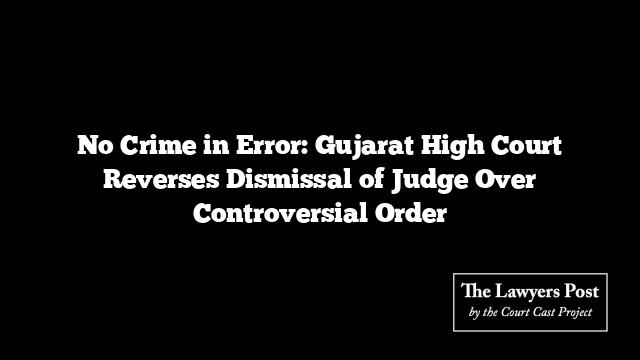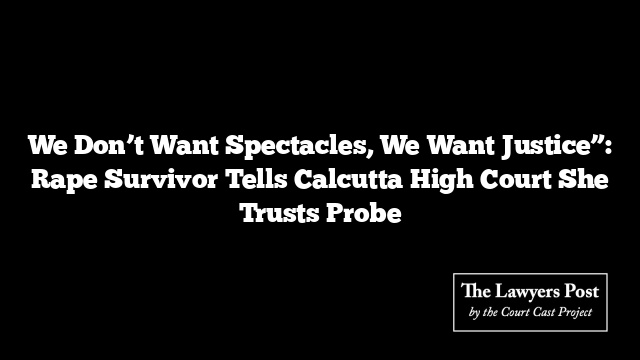In a sharp rebuke to overzealous disciplinary action, the Gujarat High Court has ruled that flawed judicial orders—however incorrect they may seem—do not, by themselves, amount to misconduct. The ruling breathes life back into the career of judicial officer M.J. Indrekar, whose 2011 dismissal has now been quashed.
A Division Bench of Justices A.S. Supehia and R.T. Vachhani made it clear: a judge isn’t a wrongdoer merely because a ruling raises eyebrows. Without concrete proof of corruption, bias, or external pressure, disciplinary proceedings have no legs to stand on.
The flashpoint in the saga? An interim order passed on August 27, 2007, granting an ex-parte mandatory injunction in a civil suit—an order that allegedly ignored a pending theft case and a third party’s plea to be added to the proceedings. The judge also directed that oil tankers involved in the dispute be handed over to the plaintiffs. These decisions led to four charges in a departmental inquiry, two of which—concerning the injunction and tanker possession—were held to be “proved.”
But the cracks began to show quickly.
The inquiry officer himself had exonerated the judge on two of the charges, noting that one of the core complaints was later disowned by the person who allegedly filed it. Still, the High Court, in its administrative capacity, overruled the inquiry report and issued a show-cause notice, which ultimately led to the dismissal order by the State.
When the matter landed before the High Court again—this time judicially—the story took a different turn.
The judge’s legal team contended that the entire proceeding was built on sand: a complaint of questionable authenticity, vague allegations, and nothing that remotely resembled persuasive evidence of malice or misconduct. They argued that the injunction was legally sound given that the disputed tankers weren’t under police custody, and that the criminal case hadn’t advanced beyond its preliminary stage.
The opposing side painted a graver picture: a judge granting ex-parte relief without adequate reasoning and allegedly helping plaintiffs take possession despite pending applications.
But the Bench wasn’t convinced. The judgment dismantled the foundation of the dismissal, brick by brick.
“There is no evidence on record to suggest that the tankers were in police custody,” the Court observed, adding that even if the interim order strayed from legal orthodoxy, it couldn’t be construed as an act of corruption. “At the most, it may be said that the ex-parte interim relief granted was not in strict conformity with legal principles,” the judgment stated, “but that by itself cannot be construed as a corrupt practice.”
The court went further: “There is not even a speck of evidence on record… to suggest that the petitioner has, for extraneous consideration or for any personal benefit, passed the orders.”
With that, the dismissal was scrapped, and Indrekar is now set to be reinstated as Additional Senior Civil Judge and JMFC.
Justice, it seems, has finally caught up with judgment.





